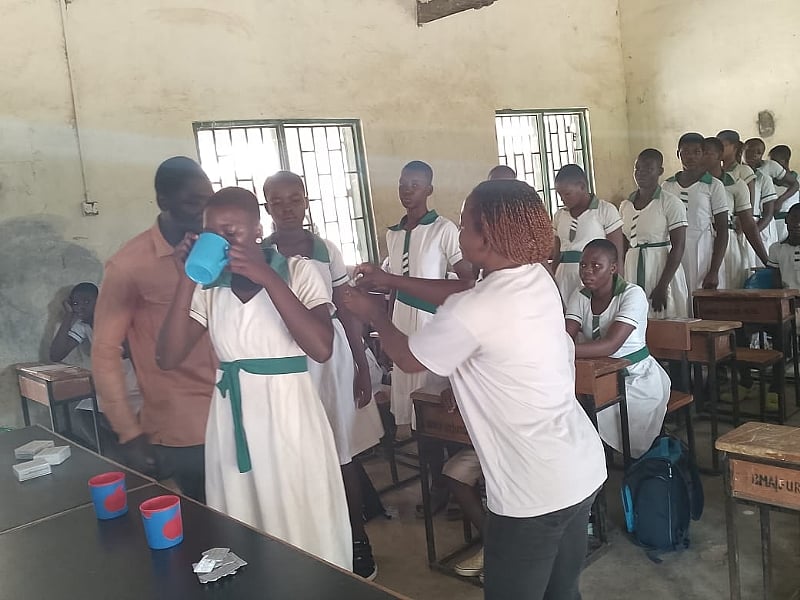The School-Age Nutrition Programme, implemented in partnership with the Ghana Health Service and supported by UNICEF, aims to promote positive nutritional behaviors among schoolchildren while addressing malnutrition issues within the Bolgatanga East District. This initiative has been widely praised for its comprehensive approach, emphasizing the importance of both healthy eating habits and lifestyle choices. Students like Miss Nsoh Immaculate Ayinbotimah and Miss Nsobila Charity from the Maurice Browne Memorial School have shared their personal success stories, highlighting the program’s impact on their health and well-being. Specifically, Nsoh reported significant improvements in her health, noting the disappearance of her severe and irregular menstruation issues since the program’s introduction. Meanwhile, Charity, who previously struggled with frequent illnesses, has transformed into a healthier and more vibrant participant in her class.
The School-Age Nutrition Programme focuses on inculcating healthy eating habits among children and encompasses a variety of educational initiatives. Alongside traditional nutritional advice, the program organizes special health days that celebrate fruits, vegetables, protein, and hygiene awareness. These events not only teach children about balanced diets but also encourage them to actively participate in food preparation and consumption practices that support their growth and development. The overall objective of the project is to combat malnutrition by ensuring that children are well-informed about healthy lifestyle choices, fostering a generation better prepared to face health challenges durably.
UNICEF’s implementation of this initiative spans roughly 100 schools within the region, illustrating the organization’s commitment to improving children’s health outcomes. As part of the program, UNICEF has also introduced the Girls Iron-Folic Acid Tablet Supplementation initiative, aimed specifically at addressing issues related to anaemia among adolescent girls in public schools. This multifaceted approach highlights the importance of addressing both dietary intake and specific health needs to enhance the overall well-being of students. During a recent visit to the Maurice Browne Memorial School, UNICEF’s team witnessed firsthand the positive uptake of nutritional practices during the fruits and vegetables day, where students actively participated by bringing various fruits, showcasing their engagement with the program.
Madam Christiana Azupio, a Nutrition Officer in the Bolgatanga East District, emphasized the program’s effectiveness in instilling balanced diet habits among students. She noted that even on days not dedicated to specific food themes, students consistently demonstrate a willingness to bring nutritious foods to school. This voluntary participation speaks to how deeply the initiative has resonated with the schoolchildren, marking a significant cultural shift towards healthier eating habits. The observed excitement among students indicates the genuine interest they are developing in their own health and nutrition, fostering a generation of more informed and health-conscious individuals.
During the UNICEF team’s visit, Madam Porbilla Ofosu Apea, Health and Nutrition Officer from the Tamale Field Office, acknowledged the collective efforts of all stakeholders involved in the program. She called on partners to increase collaborative efforts to address malnutrition effectively and sustainably. This cooperative approach is vital for addressing the perennial issues associated with nutrition in the region. The collaboration between the Ghana Health Service, schools, and international organizations like UNICEF plays a crucial role in ensuring that the objectives of the School-Age Nutrition Programme are realized.
Concluding their visit, the team met with Dr. Samuel Kwabena Boakye-Boateng, the Upper East Regional Director of Health. He expressed gratitude toward UNICEF for its ongoing support and contributions over the years, reiterating a commitment to ensuring the program’s sustainability. The reassurance of continued efforts demonstrates a shared responsibility among stakeholders to bolster health education and nutritional practices for school-aged children. As the initiative continues to unfold, the experiences shared by students testify to the program’s promising impact on individual health outcomes, paving the way for a healthier, more nutritionally aware future generation.


